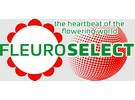How to make the seed industry future-proof by reducing climate change and stimulating biodiversity was the key theme of Fleuroselect’s International Home Garden Conference that took place on 6-7 September in Noord-Holland, The Netherlands. Approx. 75 professionals from 9 countries reunited to exchange business views and seek inspiration. Offering a well-balanced mix between topical presentations and company visits, the Home Garden Conference has become a key annual event for the international seed industry.

Embrace diversity
The first day of the conference focused on biodiversity. Pierre Byache-Kersemaecker, owner Graines Lecouf Mailliet, gave a comprehensive overview of the latest breeding developments and uses of Salvia. The breeding of vegetatively propagated, perennial varieties is on the rise with sales shifting from spring towards summer. In terms of use, annuals are still used in carpet bedding or mono-plantings but are increasingly mixed with perennial varieties, dahlia’s and bulbs whereas perennial varieties gain popularity in landscaping with grasses or dry gardens. Annemarie Kruize from De Bolster explained how this cooperative around organic breeding is looking at sustainable food and flower production by taking ‘natural resistance’ as the main criterion when selecting new varieties. Bulk seed is sold to the professional grower, pictorial packets to the home gardener. Patents on seed being a challenge to the development of new varieties, Annemarie pleaded to maintain a wide range of genetics to serve the different climates and needs worldwide.
The program continued with two company presentations from Philipp Klein Samen and Econ Seeds. Director Teresa Hessel gave a corporate overview of Philip Klein Samen, a German family company in its 6th generation and owner of established pictorial packets brands Frankonia and Samen Pfann. The management team has recently decided to join Fleuroselect to expand their international professional network. Hubert Keller, General Manager of Econ Seeds, showed how the company is embracing diversity in all its aspects and aims at preserving nature and genetic variety. An international team based in The Netherlands and France strives to develop a wider product assortment in flower seed mixes and single open-pollinated flowers, as well as being a reliable seed producer for pictorial seed packets, pot and bedding and landscaping. Hubert invited the group to take up current challenges such as water availability, climate change and biodiversity and translate these into opportunities the sector can use to its advantage and communicate with its clients.

Flower displays and sunshine galore
The sunlit afternoon was spent visiting Econ Seeds in Hoogkarspel where the group received a guided tour through the brand new seed storage and packaging facilities followed by individual time on the truly outstanding trial field with thousands of plants on display. The journey continued with a visit to one of the PanAmerican Seed trial fields in Hem where the group was welcomed by General Manager The Netherlands / Breeding Director Europe Ruud Brinkkemper.
Leon Vrijland, cultural officer at PanAmerican Seed and Fleuroselect judge, expertly showed the current Fleuroselect annual trial where new breeding achievements from the members are compared to existing varieties on the market. At the end of the season, varieties that perform better than the comparisons will be awarded a Gold Medal or granted Approved Novelty Protection. Also, a trial of Impatiens Beacon and a selection of PanAmerican’s assortment for home gardening was on display.

How to make the ornamental seed industry future-proof
The second day of the conference put corporate social responsibility in the spotlight. Martin de la Harpe, an independent sustainability expert, gave a general introduction to CSR. He showed which regulations are in place to protect the workforce, how the Paris Agreement is protecting the planet by fighting climate change and how companies will need to contribute by planning their transition to a low carbon footprint. Norma Wouters-Snell, country representative The Netherlands for Amfori urged the group to start mapping the supply chain by researching the provenance of all goods and services, identifying potential problems, improving any adverse impacts and communicating to customers. Elise Wieringa, sustainability manager at Royal Lemkes, invited all attendees to contribute to climate change reduction by calculating/reducing the carbon footprint and making the supply chain transparent. Future new varieties will need to be resistant to diseases, produced without pesticides and grown in a peat-free medium to make it to the shelves. As retailers and consumers will need to be made aware of the true cost of environment-friendly plant breeding and production, breeders need to start measuring and calculating the additional costs.
The conference was concluded with an excellent keynote speech by Rob Baan in which he encouraged the participants to change the way they think about food. Food is crucial for health and horticulture should take up a key role. In order to remain healthy, people should refrain from ultra-processed food and eat like we did in the past with a traditional 80% plants, 20% meat repartition. As children need to learn again how vegetables are grown, Rob encouraged all companies to get involved in a school gardening project.
For more information: 
Fleuroselect
info@fleuroselect.com
www.fleuroselect.com
